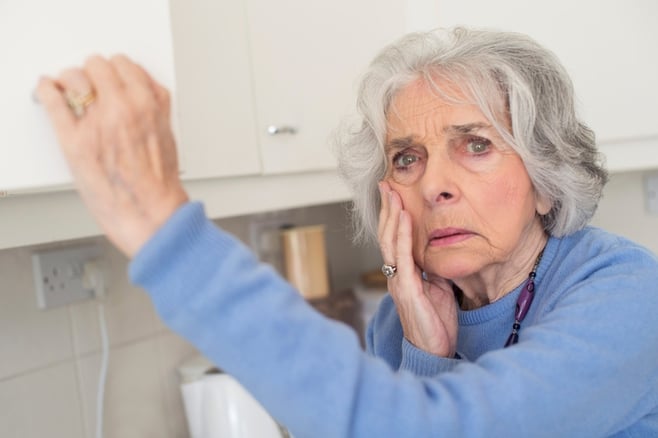
You’re in a rush, stressed out and running late on an already-busy day. Now, you’re on your way back out the door, thinking about all the errands you still need to run and, suddenly, you can’t remember where you left your keys. You don’t even remember the last time you had them.
Is it overtired and unable to think clearly? Or is it actual memory loss? When is it normal, age-related memory loss, versus a sign of a stroke, early-onset dementia or Alzheimer’s disease?
These are questions that keep many seniors and their family members awake at night. Sudden memory loss is disconcerting. Sometimes, it’s a warning sign that you should pay close attention to.
Today, let’s talk about when you and your loved ones should relax and carry on, and when you should worry.
Should You Worry? It All Depends on Frequency and Context
The brain is a complicated piece of bio-machinery. Many factors can affect its performance.
If you just misplaced your keys today and memory problems don’t seem to be a regular occurrence, then you’re probably like the rest of us: trying to take on too much at once and balance it all.
If memory lapses seem to be frequent — and especially if you or the people closest to you are noticing that they’re becoming more frequent — then you should talk to your doctor. Dementia, Alzheimer’s and other chronic brain disorders typically have an insidious presentation, meaning their symptoms start small and infrequent, then ramp up in frequency and scale.
If you’ve suddenly forgotten something extremely important, that most people would never forget — your own birthday, your nephew’s name, or your own address, for example — you should be seen in the emergency room right away, because you might have an immediately life-threatening condition.
Acute medical conditions like strokes, infections, adverse medication interactions and traumatic brain injuries are more likely the cause of sudden, profound memory loss. Usually, they’ll also cause other, concurrent symptoms, like vertigo or wooziness, loss of physical coordination, or disorientation.
If your memory loss is accompanied by sudden, sharp head pain (a “thunderclap”
Some Memory Loss is Treatable
Memory loss that’s caused by over-medication, under-medication, or an adverse drug interaction is treatable and (usually) reversible when your doctor tweaks your medication regimen. He or she may prescribe a different dose, substitute another medication, or opt to wean you off one or more medications.
Likewise, memory loss can be a symptom of serious infection. Kidney and urinary tract infections, for example, are often found to be the root causes of sudden memory loss in older people. Prompt medical attention and a course of antibiotics might be all you need to get back to normal.
Strokes, on the other hand, can cause partial or full memory loss, because they can cause physical damage to your neural tissue. Only time and intensive memory care therapy will reveal whether that damage is permanent, but it’s always worth the attempt.
Some memory loss isn’t preventable or curable but could be slowed with memory care therapy.
At present, there are no surefire methods of prevention for chronic, devastating cognitive disorders like Alzheimer’s, Parkinson’s, or Lewy body dementia. There are no cures, either, although we’re hopeful that with continued investment in research, science will one day figure them out.
Memory care treatments, like those we offer at Marjorie P. Lee in our Kirby and Morris memory care households, help some people to extend and preserve their memory. Other seniors continue to experience memory decline. There’s no way to predict the outcome but, again, it’s always worth trying.
Many memory care residents here — and at our sister Episcopal Retirement Services memory care communities — experience excellent results from innovative cognitive therapies like SAIDO Learning, iN2L computer-based learning, the Mind Fit series (featuring Cognitive Therapeutics Method interventions), and Music & Memory.
If you or
Want to learn more about memory care at Marjorie P. Lee? Click here to request more information. We’re here to help.












